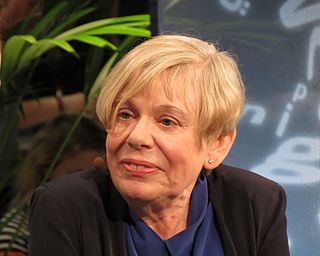Dhimmī or muʿāhid (معاهد) is a historical term for non-Muslims living in an Islamic state with legal protection. The word literally means "protected person", referring to the state's obligation under sharia to protect the individual's life, property, as well as freedom of religion, in exchange for loyalty to the state and payment of the jizya tax, in contrast to the zakat, or obligatory alms, paid by the Muslim subjects. Dhimmi were exempt from certain duties assigned specifically to Muslims if they paid the poll tax (jizya) but were otherwise equal under the laws of property, contract, and obligation.

The history of religion refers to the written record of human religious feelings, thoughts, and ideas. This period of religious history begins with the invention of writing about 5,200 years ago. The prehistory of religion involves the study of religious beliefs that existed prior to the advent of written records. One can also study comparative religious chronology through a timeline of religion. Writing played a major role in standardizing religious texts regardless of time or location, and making easier the memorization of prayers and divine rules. A small part of the Bible involves the collation of oral texts handed down over the centuries.

Muhammad was an Arab religious, social, and political leader and the founder of Islam. According to Islamic doctrine, he was a prophet divinely inspired to preach and confirm the monotheistic teachings of Adam, Abraham, Moses, Jesus, and other prophets. He is believed to be the Seal of the Prophets within Islam. Muhammad united Arabia into a single Muslim polity, with the Quran as well as his teachings and practices forming the basis of Islamic religious belief.

Sita Ram Goel was an Indian historian, religious and political activist, writer, and publisher in the late twentieth century. He had Marxist leanings during the 1940s, but later became an outspoken anti-communist and also wrote extensively on the damage to Indian culture and heritage wrought by expansionist Islam and missionary activities of Christianity. In his later career he emerged as a commentator on Indian politics, and adhered to Hindu nationalism.
Qutbism is an Islamist ideology which was developed by Sayyid Qutb, a leading member of the Muslim Brotherhood who was executed by the Egyptian government in 1966. It has been described as advancing the extremist, jihadist ideology of propagating "offensive jihad" – waging jihad in conquest – "armed jihad in the advance of Islam", and simply "Islamic-based terrorism".
In Arabian mythology, Hubal was a god worshipped in pre-Islamic Arabia, notably by the Quraysh at the Kaaba in Mecca. The god's idol was a human figure believed to control acts of divination, which was performed by tossing arrows before the statue. The direction in which the arrows pointed answered questions asked of the idol. The specific powers and identity attributed to Hubal are equally unclear.

Karen Armstrong is a British author and commentator of Irish Catholic descent known for her books on comparative religion. A former Roman Catholic religious sister, she went from a conservative to a more liberal and mystical Christian faith. She attended St Anne's College, Oxford, while in the convent and majored in English. She left the convent in 1969. Her work focuses on commonalities of the major religions, such as the importance of compassion and the Golden Rule.
Criticism of Islam is the act of questioning or challenging the beliefs, practices, and doctrines of Islam. Criticism of Islam can take many forms, including academic critiques, political criticism, and personal opinions.

The Battle of Uhud was a major engagement between early Muslims and the Quraysh during the Muslim-Quraysh War. The battle was fought in a valley north of Mount Uhud near Medina on Saturday, 23 March 625 AD,

Muhammad: Legacy of a Prophet is a PBS documentary film about the life of the Islamic prophet Muhammad based on historical records and on the stories of living American Muslims who call Muhammad the Messenger of God. It was produced in 2002 by Alex Kronemer and Michael Wolfe of Unity Productions Foundation and Kikim Media.

Syed Ameer Ali Order of the Star of India (1849–1928) was an Indian jurist, a prominent political leader, and author of a number of influential books on Muslim history and the modern development of Islam. He hailed from the state of Oudh from where his father moved and settled down in the Bengal Presidency and is credited for his contributions to the law of India, particularly Muslim personal law, as well as the development of political philosophy for Muslims, during the British Raj.

The first pilgrimage or Umrah of Dhu'l-Qada was the first pilgrimage that the Islamic prophet Muhammad and the Muslims made after the Migration to Medina. It took place on the morning of the fourth day of Dhu al-Qi'dah 7 AH, after the Treaty of Hudaybiyyah 6 AH. The entire event was three days long.
Many social changes took place under Islam between 610 and 661, including the period of Muhammad's mission and the rule of his four immediate successors who established the Rashidun Caliphate.
Muhammad: A Prophet For Our Time is a 2006 non-fiction book by the British writer Karen Armstrong. It is part of the "Eminent Lives" series, which are short biographies of famous people by well-known writers. It is Armstrong's second biography of Muhammad. Her first biography Muhammad: a Biography of the Prophet earned her the Muslim Public Affairs Council Media Award. Muhammad: A Prophet For Our Time is a short biography that shows how most Muslims understand Muhammad and their faith. In the book, Armstrong depicts Muhammad as both a mystic and a wise political and social reformer.

Jerusalem in the Middle Ages was a major Byzantine metropolis from the 4th century CE before the advent on the early Islamic period in the 7th century saw it become the regional capital of Jund Filastin under successive caliphates. In the later Islamic period it went on to experience a period of more contested ownership, war and decline. Muslim rule was interrupted for a period of about 200 years by the Crusades and the establishment of the Christian Kingdom of Jerusalem. At the tail end of the Medieval period, the city was ceded to the Ottomans in 1517, who maintained control of it until the British took it in 1917.

The Kaaba, also spelled Ka'ba, Ka'bah or Kabah, sometimes referred to as al-Ka'ba al-Musharrafa, is a stone building at the center of Islam's most important mosque and holiest site, the Masjid al-Haram in Mecca, Saudi Arabia. It is considered by Muslims to be the Bayt Allah and is the qibla for Muslims around the world. The current structure was built after the original building was damaged by fire during the siege of Mecca by Umayyads in 683.
Abu Talib ibn Abd al-Muttalib was the leader of Banu Hashim, a clan of the Qurayshi tribe of Mecca in the Hejazi region of the Arabian Peninsula. He being the brother of Abdullah the father of the Islamic Prophet Muhammad, was his uncle and father of Ali. After the death of his father Abd al-Muttalib ibn Hashim ibn Abd Manaf, he inherited this position, and the offices of Siqaya and Rifada. He was well-respected in Mecca.

The Battle for God: Fundamentalism in Judaism, Christianity and Islam is a book by author Karen Armstrong published in 2000 by Knopf/HarperCollins which the New York Times described as "one of the most penetrating, readable, and prescient accounts to date of the rise of the fundamentalist movements in Judaism, Christianity, and Islam". The Battle for God traces the history of the rise of fundamentalism in the three major monotheistic faiths. Armstrong's analysis starts with developments in Judaism and traces it through the creation of fundamentalism in Christianity to adoption of a similar approach to modernity in Islam.

Jonathan Andrew Cleveland Brown is an American scholar of Islamic studies. Since 2012, he has served as an associate professor at Georgetown University's Edmund A. Walsh School of Foreign Service. He holds the Alwaleed bin Talal Chair of Islamic Civilization at Georgetown University.
Islam is an Abrahamic, monotheistic religion. Muslims are those who adhere to that religion. Islam may also refer to:










